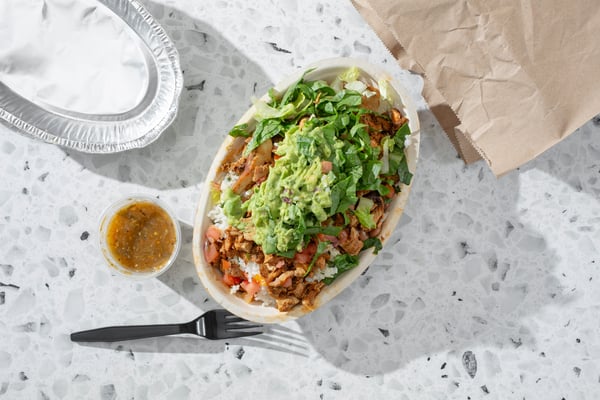
Chipotle doesn't spend much time calculating future comparable-restaurant sales. Credit: Chipotle Mexican Grill
When Chipotle Mexican Grill (CMG +0.57%) released third-quarter results in October, the numbers were awe-inspiring.
Revenue jumped 31.1% year over year to $1.08 billion, helped by an amazing 19.8% increase in comparable-restaurant sales. Meanwhile, restaurant level operating margin climbed by 200 basis points to 28.8%, cash generated from operating activities rose 41.4% to $549.8 million, and net income increased a whopping 56.9% to $130.8 million.
However, the market was much less enthusiastic about Chipotle's guidance, driving shares down 7% after the burrito maker called for 2015 comparable-restaurant sales to increase in the low- to mid-single digit range. During the subsequent conference call, analysts unsurprisingly grilled Chipotle management on exactly how they reached that range. After all, it seemed especially conservative considering Chipotle's Q3 performance had just capped a six-quarter streak of accelerating comps growth.
Chipotle doesn't have a clue
Here's how Chipotle Chairman and co-CEO Steve Ells responded:
We don't spend a lot of time trying to predict how we are going to leap over that number. What we do is, we take our current sales trends and we literally just push them out over the next 14 months -- for the rest of this year and then for all of 2015. ... This is the way we have always predicted comps. ... [W]e really don't have a magic approach or a crystal ball to predict how you are going to exceed like a 19% comp, for example.
Translation? Chipotle is happily ignorant when it comes to determining precisely what future comps will be. The company simply extrapolate sales trends out, as it always has, to get a rough ballpark figure of what the coming year might look like.
Why this is a great thing
And to be honest, though that might seem unsettling, I think Chipotle investors should be perfectly happy with this approach for two reasons.
First, though it's true comps give us an idea of how effectively Chipotle is drawing in new customers and keeping them coming back for more, it's far from a perfect metric to gauge the long-term prospects of the business. Comps tend to naturally ebb and flow with irregular events like price increases, as well as difficult (or easy) year-over-year comparisons. In the end, I'm relatively unconcerned that Chipotle's not-so-scientific approach at modeling comps predicts it may finally decelerate growth from 19.8% -- which, by the way, was its best result since going public in 2006.
On the other hand, I suppose near-term disappointments with comparable-store sales do create buying windows for opportunistic investors.
Second, note Chipotle is focusing on what really matters instead. Ells elaborated:
We are constantly working on improving our customer experience, we are constantly working on improving our people culture, and we are constantly looking to upgrade the quality of our ingredients. ... So we are constantly working on the things that will enhance the dining experience. And over the years it has paid off, so that when we do a good job, when we have great teams, and when they do a good job of providing a great dining experience, customers want to come back to Chipotle more often.
Notice nowhere in that comment were actual comps mentioned. Rather, Ells has a singular focus on improving the Chipotle experience for customers, from fostering its amiable culture all the way down to improving the quality of its already excellent food.
In short, he's thinking about Chipotle Mexican Grill not just as a stock ticker or piece of paper, but rather as the living, thriving, growing business it truly is. From an investor's standpoint, it's hard to think of a better way to create shareholder value than that.






